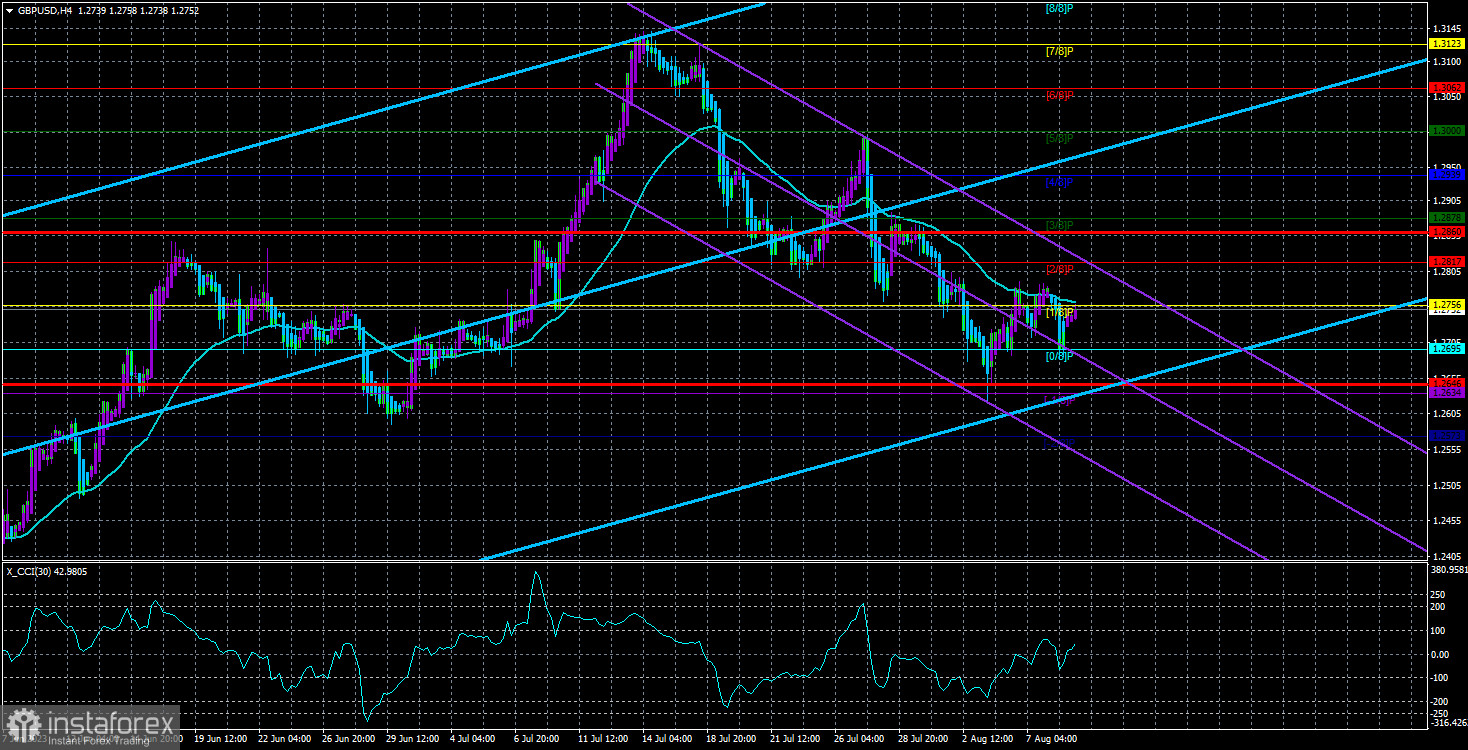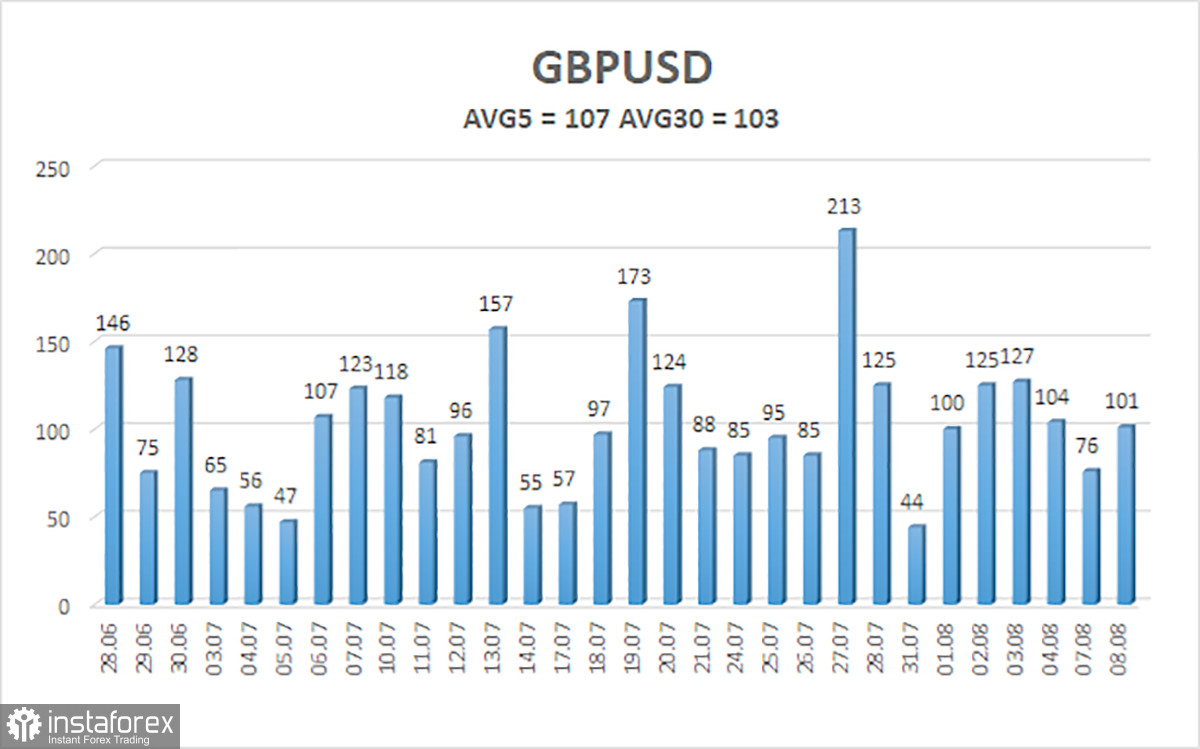
The GBP/USD currency pair rebounded from the moving average on Tuesday and fell to the Murray level of "0/8"–1.2695. Thus, there is currently no technical basis to expect a strong rise in the pound. However, this might change today if consolidation is above the moving average. It should be understood that the market is currently in a sort of equilibrium. There are no new significant fundamental data; the central banks' meetings took place recently, and their outcomes have already been factored into the market. The future direction of interest rates seems both evident and unclear simultaneously. Let's delve into this issue.
The Bank of England should continue tightening monetary policy, as the current inflation level suggests nothing different. But there are some "buts." The British economy has been stagnant for four consecutive quarters. This means that each subsequent rate hike could push it into a recession. Initially, such a recession might be mild and, annually, inconspicuous. But the longer the rates stay high, the greater the probability of entering a more noticeable recession. Emerging from a recession can be as challenging as bringing inflation back to the target level. It could take years to reignite the economy.
Therefore, the Bank of England should take a break this fall, as the current rate is quite "restrictive," but it will generally continue to tighten. What does this mean for the pound? The market has already priced in all the rate hikes. The pound has risen almost 3000 points, even though, during this period, the Federal Reserve was also raising its rate. Hence, there's no basis for resuming the pound's upward trend. However, as we've often said, the foreign exchange market can sometimes behave illogically, and such movements can persist for a prolonged period.
Regarding the Federal Reserve, the market will closely monitor the speeches of the monetary committee members in the coming month, even though these speeches might not hold much significance. If inflation stops dropping in July and August, there will inevitably be talk of further monetary tightening. Even if there's a pause in September, the rate will be raised at the subsequent meeting. This plan can only change if the macroeconomic data drastically shifts in the following few months, which is not currently anticipated.
In conclusion, the GBP/USD pair will continue to fall or consolidate due to the lack of a clear fundamental advantage for the dollar or pound. Considering the pound's general overbought condition, a continued decline is more likely.

The average volatility of the GBP/USD pair over the last five trading days is 107 points. For the pound/dollar pair, this value is considered "average." On Wednesday, August 9th, we anticipate movement within the range defined by the levels of 1.2646 and 1.2860. A reversal of the Heiken Ashi indicator back downwards will signal a resumption of the downward movement.
Nearest support levels:
S1 – 1.2695
S2 – 1.2634
S3 – 1.2573
Nearest resistance levels:
R1 – 1.2756
R2 – 1.2817
R3 – 1.2878
Trading recommendations:
On the 4-hour timeframe, the GBP/USD pair continues to be positioned below the moving average. Short positions with targets at 1.2695 and 1.2646 are still relevant and should be opened in the event of a reversal of the Heiken Ashi indicator downwards or a price bounce off the moving average. Long positions can be considered if the price consolidates above the moving average, with targets at 1.2817 and 1.2860.
Illustration explanations:
Linear regression channels help determine the current trend. If both are directed in one direction, the current trend is strong.
Moving average line (settings 20.0, smoothed) determines the short-term tendency and the direction in which trading should be conducted.
Murray levels are target levels for movements and corrections.
Volatility levels (red lines) represent the probable price channel in which the pair will spend the next 24 hours based on current volatility indicators.
The CCI indicator – its entry into the oversold area (below -250) or the overbought area (above +250) indicates that a trend reversal in the opposite direction is imminent.
 English
English 
 Русский
Русский Bahasa Indonesia
Bahasa Indonesia Bahasa Malay
Bahasa Malay ไทย
ไทย Español
Español Deutsch
Deutsch Български
Български Français
Français Tiếng Việt
Tiếng Việt 中文
中文 বাংলা
বাংলা हिन्दी
हिन्दी Čeština
Čeština Українська
Українська Română
Română

